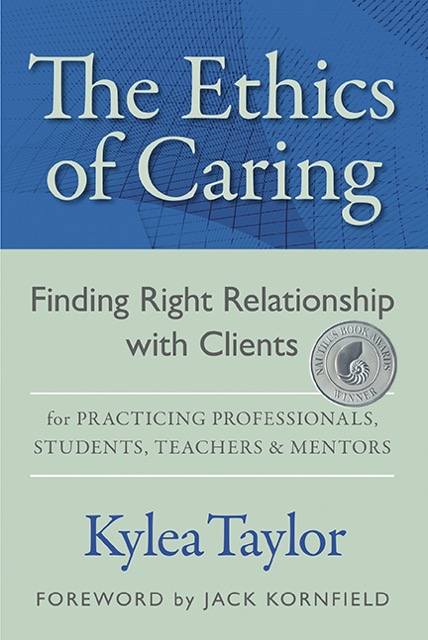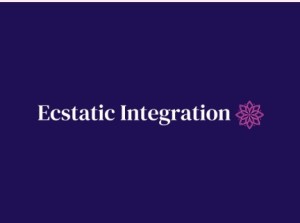InnerEthics®
What Is InnerEthics®?
- An inner, complementary approach to ethics education, adding awareness tools to the traditional, external codes, rules, laws, and standards that help guide our ethical behavior.
- A model that encourages compassionate self-reflection about our motivations
- A set of concepts and practical tools that help us know and support ourselves in Right Relationship.
- Professional development with a personal bonus of benefitting our everyday lives and relationships.

InnerEthics® provides a reflective, compassionate, and transpersonal approach to being in Right Relationship with ourselves, our clients, and in community with others. It offers concepts and practical tools to help us avoid ethical pitfalls and develop our inner ethical awareness. Learn more about InnerEthics®.
Ethics is about relationship. It is about the inner relationships of our values to actions and how we view and treat “the other” in our personal and professional communities. Ethics is the process by which we sort out what best creates inner and outer harmony in our lives and in the lives of those we care for. ~ Kylea Taylor, LMFT

The Ethics of Caring was written for all helping professionals — psychotherapists, bodyworkers, medical practitioners, clergy, hypnotherapists, acupuncturists and guides — who want to become more conscious in their client relationships.
The InnerEthics® model offers practical tools for avoiding ethical pitfalls and increasing ethical awareness through a self-reflective, self-compassionate approach to Right Relationship. The book illuminates many profound, extra-ordinary types of human experiences and explores ethical dilemmas in seven areas of life: money, sex, power, love, truth, insight, and oneness.
The Ethics of Caring can be used as a classroom text, a manual for self-supervision, a guide for peer consultation or supervision groups, or to assist supervisors in more formal individual and group supervision. Learn more.
“The Ethics of Caring is an extraordinarily helpful, groundbreaking book for healers, clergy, therapists, and bodyworkers that illuminates what is necessary to offer wise and trustworthy relations to clients. Kylea has grounded her work in the spiritual principle of reverence for life that underlies all the world’s great religions and healing systems. The Ethics of Caring alerts healers not to underestimate the power of energies that arise in extraordinary states through transference and countertransference.” ~ Jack Kornfield, Ph.D.
“The work with non-ordinary states of consciousness brings specific new challenges and problems that go beyond those encountered in traditional verbal and experiential approaches. Kylea Taylor’s book is a pioneering venture into these new territories, providing important guidelines for practitioners and their students.” ~ Stanislav Grof, M.D.
InnerEthics® Courses
Ethical Right Relationship in Psychedelic Therapy
Learn a self-reflective, self-compassionate approach to Right Relationship. Self-paced video courses in partnership with Psychedelic Support Education.
Ethics 101. Topics include a client’s ethical needs in psychedelic-assisted psychotherapy, mindfulness for working ethically with vulnerable clients, and using the Chart of Professional Vulnerabilities to Ethical Misconduct to identify one’s motivations.
Ethics 102. A therapist using psychedelic-assisted therapy is responsible for creating Right Conditions to mobilize the client’s inner healing capacity with the assistance of psychedelic and therapeutic support. Part 2 introduces participants to two additional practical means to assist with maintaining awareness and Right Relationship.
NEW! Ethics 103. The Peer Consultation Groups: Supporting Ethical Alertness in Community course provides instruction about the structure (the roles and functions) that supports vulnerability focused on compassion and learning instead of judgment so group members can become more conscious and skillful.
Designed for psychologists, therapists, mentors, physicians, medical professionals, bodyworkers, teachers, and guides interested in psychedelic-assisted psychotherapy or in assisting clients with the integration of profound experiences. Certificate of Completion or CE Certificate (2 hours CE credit per course).
Featured Podcast
Inner Ethics and Multiple Role Relationships #1
Gv at PsychedelicIQ interviews Kylea Taylor about applying the InnerEthics® approach to the complex ethical issues associated with multiple role relationships. Dual/multiple role relationships are often a prime factor in ethical missteps.

Featured Article
Kylea Taylor on the Woman Who Lost Everything
If psychedelic practitioners don’t learn the basics of altered states ethics, they could end up losing their livelihood. Joseph Holcomb Adams, Ecstatic Integration. Read the article at Ecstatic Integration.

InnerEthics® Trainings
InnerEthics® is being taught to students and professionals who will use this self-reflection method personally. InnerEthics® is also in the early stages of preparing a training program for new teachers of the InnerEthics® model. Subscribe to InnerEthics® News and contact us to be notified when this program becomes available.
